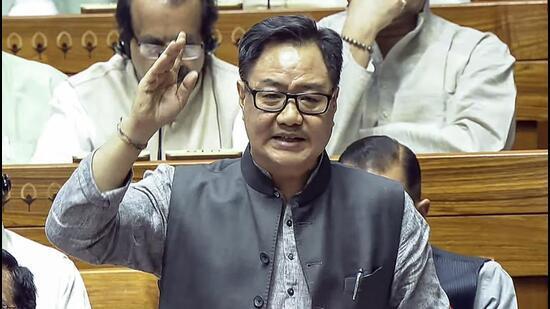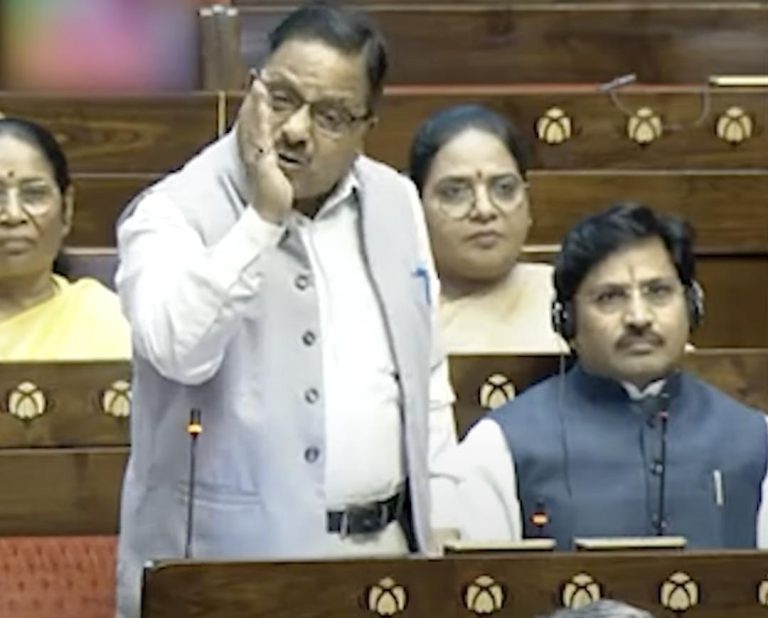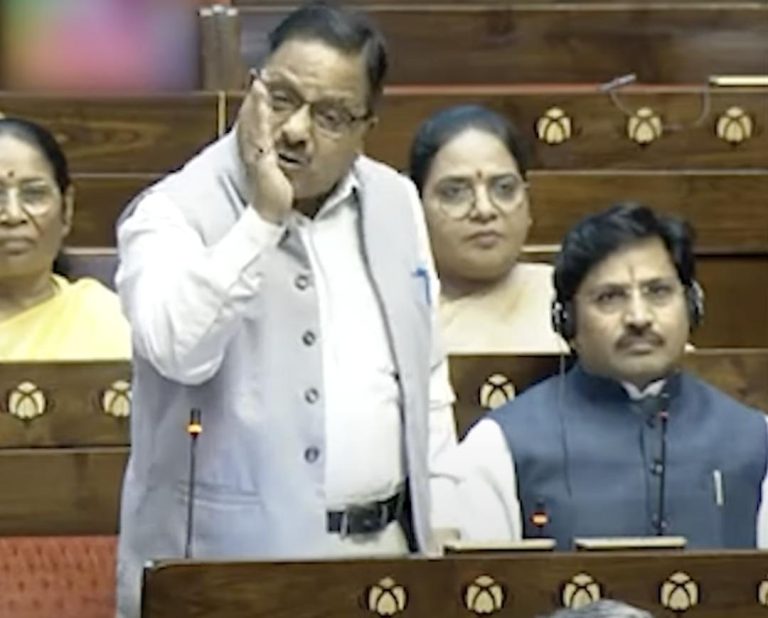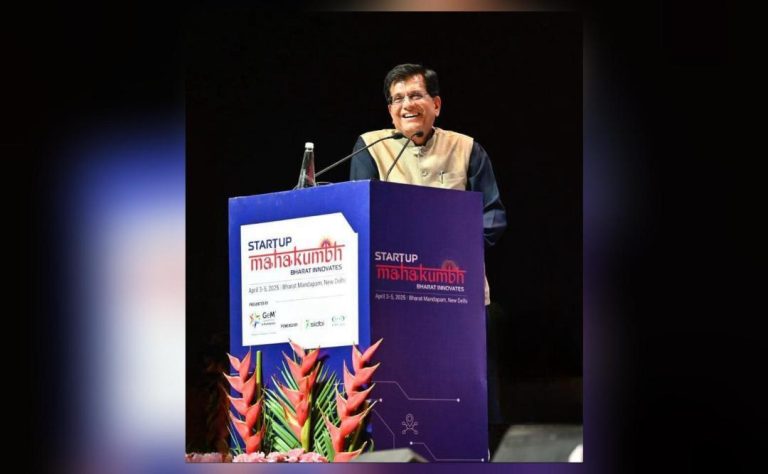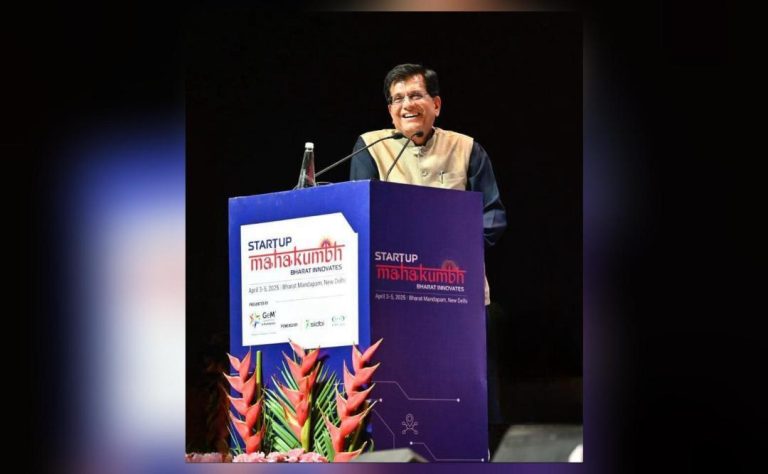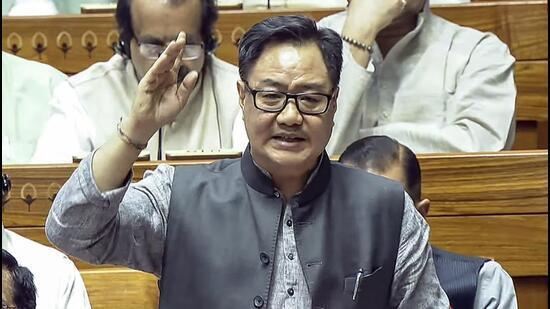
Opposition Creates Confusion & Leaves House: Rijiju in Rajya Sabha
The ongoing debate in the Rajya Sabha over the Waqf (Amendment) Bill turned into a heated exchange between Union Minister Kiren Rijiju and senior opposition members, particularly Kapil Sibal. Rijiju, in a scathing attack, accused Sibal and other opposition members of creating confusion and then walking out of the House without waiting for the government’s response.
The minister made these remarks while participating in the discussion on the Waqf (Amendment) Bill in the Upper House. The bill aims to amend the Waqf Act, 1995, and provide for the registration of Waqf properties. However, opposition members have been raising several concerns and questions about the bill, leading to a prolonged debate.
Rijiju’s outburst came after Sibal compared the properties of Waqf bodies with those of other religious bodies, including Hindu temples and Christian churches. Sibal’s remarks were seen as an attempt to highlight the alleged irregularities and mismanagement of Waqf properties. However, Rijiju saw Sibal’s comments as an attempt to create confusion and mislead the House.
“You are creating confusion, and then you walk out. You are not willing to listen to the reply,” Rijiju said, addressing Sibal and other opposition members. “This is not the way to conduct a debate. You are not interested in the facts, you are interested in creating confusion.”
Rijiju’s criticism was seen as a reflection of the growing frustration among government members over the opposition’s tactics in the House. The minister’s remarks also highlighted the lack of willingness among opposition members to engage in constructive debates and listen to the government’s perspective.
The Waqf (Amendment) Bill has been a contentious issue, with opposition parties accusing the government of attempting to dilute the provisions of the original Act. The bill proposes to introduce a new category of Waqf properties, which would be exempt from taxation. Opposition members have also raised concerns about the lack of transparency in the functioning of Waqf boards and the alleged mismanagement of Waqf properties.
The debate over the bill has been marked by heated exchanges and personal attacks between government and opposition members. Rijiju’s criticism of Sibal and other opposition members was seen as a fresh escalation of the tensions in the House.
Rijiju’s remarks also drew attention to the need for opposition members to engage in constructive debates and respect the rules of the House. The minister’s criticism was seen as a reminder that the purpose of a parliamentary debate is to engage in a meaningful discussion and arrive at a consensus, rather than simply scoring political points.
The debate over the Waqf (Amendment) Bill is expected to continue in the coming days, with both sides holding firm to their positions. The government has maintained that the bill is necessary to reform the Waqf system and ensure transparency and accountability in the functioning of Waqf boards.
In contrast, opposition parties have accused the government of attempting to undermine the autonomy of Waqf boards and dilute the provisions of the original Act. The debate has highlighted the deep-seated divisions between the government and opposition parties in the Rajya Sabha.
As the debate continues, it remains to be seen whether opposition members will be willing to engage in constructive debates and respect the rules of the House. Rijiju’s criticism of Sibal and other opposition members has highlighted the need for a more civil and respectful tone in the House. However, the government’s ability to pass the bill will ultimately depend on its ability to address the concerns of opposition members and build a consensus on the issue.
